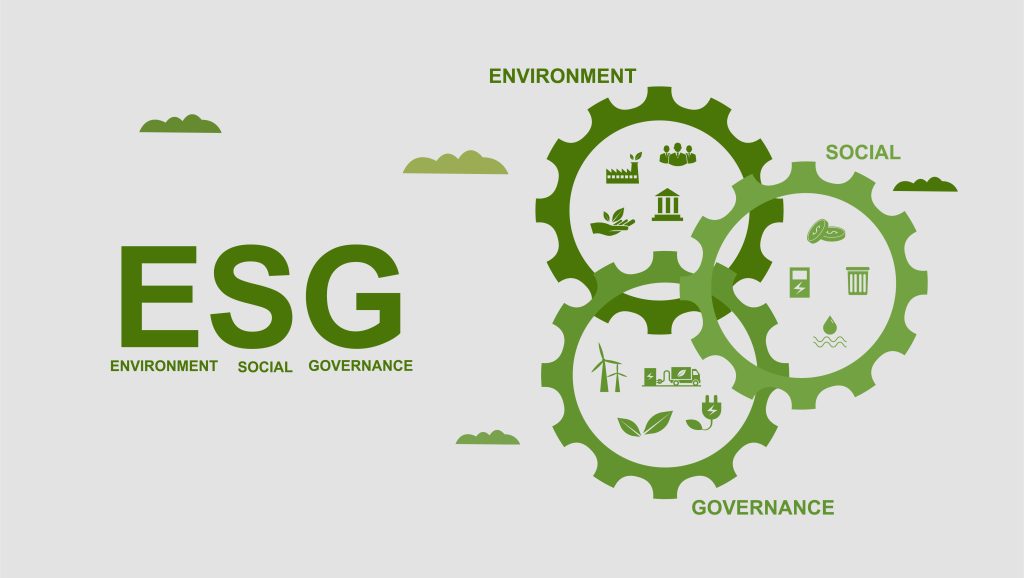Today, there is a huge impetus for businesses to move towards sustainable utilization of natural resources, leverage ethical business policies, encourage unbiased workforce relationships, and adopt environment-friendly measures in all focus areas.
The increasing concerns surrounding global warming, climate change, gender diversity, pay parity, corruption, and compliance, are forcing governments worldwide to introduce tougher regulations to ensure a safer future for the upcoming generation. One of the sectors that face the most heat in this regard is the automotive industry.
There are widespread changes in the automotive industry’s functioning compared to a decade ago. Often cited as the biggest contributor of pollutants, the industry is undergoing a wave of disruptive transformations that regulatory pressures have mandated. In addition to emission norms, newer forms of sustainable transport technologies like electric vehicles and innovative transportation business models like ridesharing have surfaced.
Other areas, such as inclusivity, pay structure, and employee relations, have the same influence in the auto industry as in any other. Therefore, automotive businesses must ensure that they do business only in a way acceptable by today’s progressive societal and governmental regulations and are willing to be scrutinized regularly.

ESG and the Automotive Challenge
Environmental, Social, and Governance or ESG are becoming a norm in the industry, with all stakeholders ranging from vehicle buyers to investors and partners demanding ESG credentials from auto manufacturers for engaging in business.
ESG is seen as a golden standard that evaluates the sustainability and ethical business practices a business is undertaking. All areas we spoke about earlier, like environmental impact, workforce relationships, ethical business practices, etc., are represented under the broad umbrella of ESG. However, the automotive industry faces a serious challenge pertaining to ESG reporting.
We are seeing increased traction from automakers to design and build electric vehicles. But launching an EV is not the parameter to judge ESG investments. Generating ESG reports encompassing audited data from across the manufacturing lifecycle is the ultimate proof for automakers to celebrate their ESG credentials. But it is not as easy as one might think.
To that end, let us explore the top challenges in ESG reporting for the automotive industry:
Data Diversity
Automotive manufacturers deal with extensive data on the factory floor and during vehicle onboarding. Launching a product like an EV into the market involves a chain of validation and verification processes, with each process branching out into further units. All of them will have multiple stakeholders collaborating to achieve the desired outcomes.
But it also results in a wide range of diverse data points lying across the verification and validation lifecycle stages in different systems. Gathering data from these systems for use in ESG reporting becomes a complex endeavor as there will be poor visibility.
Manual compilation of this data is a Herculean task and results in overheads and ultimately reduces the time for core, productive jobs. When a PVM approach is followed, the otherwise arduous tasks are taken care of, allowing engineers to invest time in handling more critical responsibilities pertaining to product design validation.
Lack of Data Standardization
A massive volume of heterogeneous data is generated in a typical automotive development environment. The scary part is that the raw form of this data does not have common traits that can help in unifying and standardizing the data to be used for further activities like ESG reporting.
This leads to huge challenges as information sharing becomes obstructed due to incompatible data management standards that different stakeholders rely on. Ultimately this leads to poor integration of work practices and manufacturing workflows and can impact sustainability initiatives significantly.
Primitive Knowledge Enhancement
Adding to the data standardization problem, another hurdle is manufacturers’ inability to translate test and validation data into actionable insights and knowledge. Without a baseline unification, there is no way for engineers to channel insights to decision-makers.
This makes it hard for automakers to reduce defects and turnaround time. Subsequently, the situation results in cost escalations and delays to dependent processes, including ESG reporting.
Poor Cross-Functional Collaboration
The parameters for ESG reporting are supplied from across the manufacturing cycle through collaborative efforts between different business systems. However, as in the case of data standardization, there will be a lack of interoperability between different stakeholder systems owing to poor engineering data insight visibility. It will be difficult for analytical systems to process and discover hidden traits inside engineering data and thus result in incorrect ESG reporting.
Summing Up
We can see that poor data management and lack of clear visibility into engineering data are the villains of poor ESG reporting for the automotive industry. To solve this problem, manufacturers must embrace Product Validation Management as a central philosophy during the development, validation, and verification stages.
From unlocking connected insights to enabling standardization of operational data from different stakeholders and testing streams, PVM has the potential to radically streamline engineering data and make it insightful for ESG reporting.
The BRIX platform from iASYS was built to bring this PVM philosophy to automotive development. It creates a centralized product data and process management ecosystem that brings all stakeholders under a single roof.
Get in touch with us to book a demo today and explore how your automotive business can launch highly ESG-compliant products for a better tomorrow.



